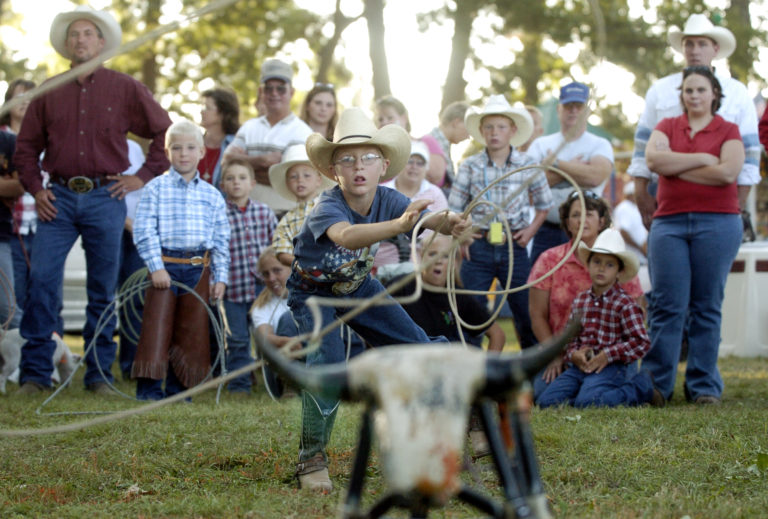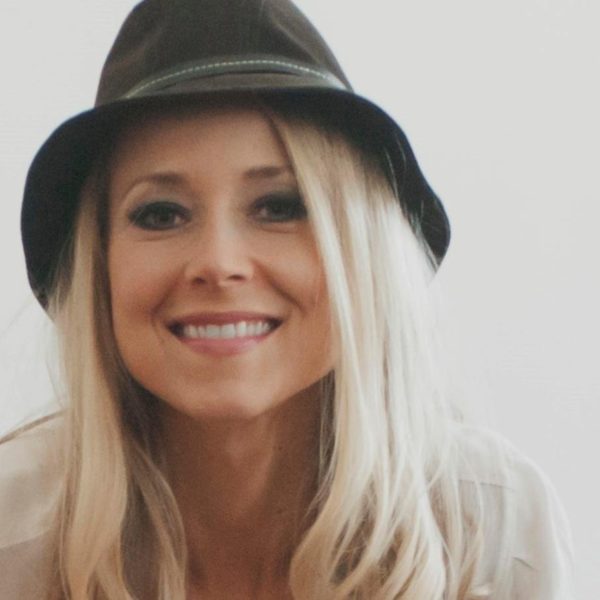
Image by Larry W. Smith.
A Nature That Could Improve the World
We grown-ups fancy ourselves the arbiters of wisdom, but anyone who remembers being a child, or who knows children now, must admit that in growing and hardening to our environments we lose at least as much knowing as we gain. What we gain, by way of nurture, tends to be an understanding of how the world works. What we lose tends to be a nature that could improve the world.
Children need loving adult guidance in interpreting the events around them, of course — the violence and horror, especially. In chaotic seasons like this one, though, when adults themselves perpetrate so much violence and horror, we might pause from worrying about teaching young people in order to consider what they can teach us.
Most often, a child’s approach is wonder rather than fear, laughter rather than cruelty, adventure rather than competition. To find that place in myself, from time to time I watch a handful of “viral” home videos of children that I’ve discovered over the years. In moments of existential unease, I summon these short videos the same way I pull up healing books, poems, music, and movies. In one of them, a little girl shakes with excitement the first time she sees a train. In another, a little boy hugs a piñata he’s been instructed to beat with a stick.
One of those favorite videos, in particular, feels relevant to our auspicious election year. In it, a three-year-old in a tiny helmet and safety vest is mounted on a small bull. A grown man, maybe his father or grandfather, shouts advice about holding the rope, keeping his chest up, keeping his eyes on the animal. But when the gate swings open — an explosive moment at rodeos — the bull doesn’t buck but rather lazily saunters around the pen while the boy holds one hand in the air like the cowboys he has watched. At one point, he starts to slide off the bull’s back, but the animal moves so slowly he’s able to scoot back in place.
I cracked up when I first saw the video, in particular at hearing the animated language of the Kansas rodeos I grew up with — Get a hold! Good ride! — applied to a small child. I recognized, too, the discomfort I felt at rodeos when I myself was a kid wanting people to treat animals like companions rather than opponents. The little boy and the bull have such a fine time that the ride lasts well past the requisite eight seconds, and the man has to shout for him to climb off. Get to the fence! he then yells, a teachable moment about the danger of standing next to an animal that could gore or trample you to death. The boy pauses for a moment before running away, though, turning back toward his new friend like he wants to give him a pat.
Rodeos, like political elections and other adult institutions, are by definition arenas of conflict. The little boy on the bull shows us that you might be gentle even when the situation has invited you to be harsh, and that others might even respond in kind. Some will not respond in kind, of course. It is for adults, not children, to discern that difference on their behalf. The little bull-rider’s caretakers set him atop a nonplussed beast with a sweet temperament, not a wild animal prodded to anger.
In the public arena, where dangers often loom, we sometimes invoke the notion of our children’s future: What kind of world will we leave for them? The resulting debates get complicated, mired by our political affiliations and selfish interests.
In recent years, my home state of Kansas has been at the center of political storms that have immediate impact on children and their futures. The government has been locked in a historic showdown between judicial and legislative branches over the funding of public education, a constitutional crisis I’ve reported on for national media. As the ideological battle wages on, often amid vitriolic banter, school budgets have been devastated so severely that a traditionally excellent state system has been forced to close schools and cut academic years short. This year, the school system was almost forced to shut down altogether. The situation has been called childish, but I would call it entirely adult.

Just down the road from the state capitol in downtown Topeka, there is another sort of child-learning strategy afoot. Toward its community objective to increase early childhood literacy, the Topeka and Shawnee County Public Library has a new goal: That every child in their community, regardless of class, race, ability, or location, will be prepared for kindergarten.
The library approaches its community service with the childlike enthusiasm and determination of its youngest patrons. The outcomes speak for themselves — Topeka was recently named the nation’s Library of the Year. They tackle dilemmas with the expansive creativity of a child who sees no boundaries where adult society likes to impose them. Libraries are about books, right? This one has a free summer lunch program too.
“When we found out kids are hungry — is it our job to feed kids? You could argue yes or no,” Gina Milsap, the Topeka library CEO, said in a recent video. She goes on to describe why she would argue “yes”:
“Hungry kids can’t learn to read as well, and learn. Is that why we care? No. We care because I’m a mom and a grandma, too, and there are hungry kids. We’re gonna feed ’em.”
Similarly, the challenges we fret over as adults are often simple in the eyes of a child. Schools are out of money? Give them more. Children are hungry? Give them food. At the core of such simplicity is an open-hearted kindness — the same spirit that would treat even a bull with horns as a friend rather than an enemy. The ideas and interests that confound good intentions are the stuff of adulthood, created and sustained by our willingness to say some problems are too complex to solve.
We know what kind of world we want to leave for our children: a safe, healthy, and happy one. In order to do so, we would do well to remind ourselves of a wisdom that children themselves possess, and that we can still find in ourselves as citizens and human beings. It is a wisdom that feels so deeply it empathizes with a piñata. It is a confident generosity that looks forward to, rather than dreads, the possibilities that lay ahead.
